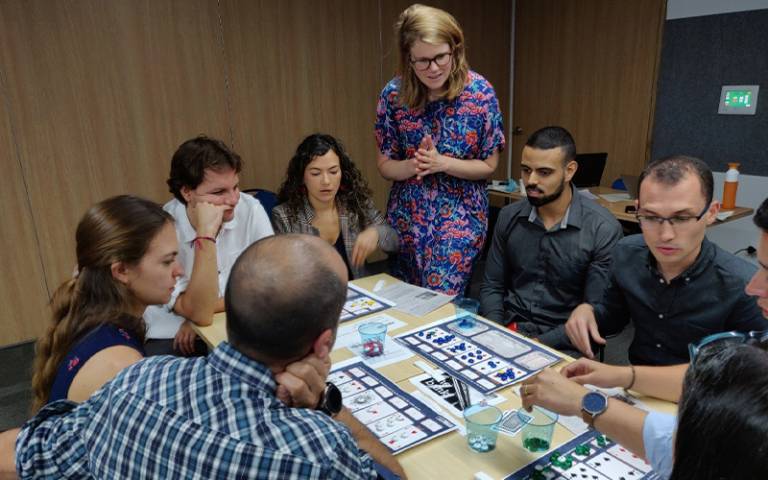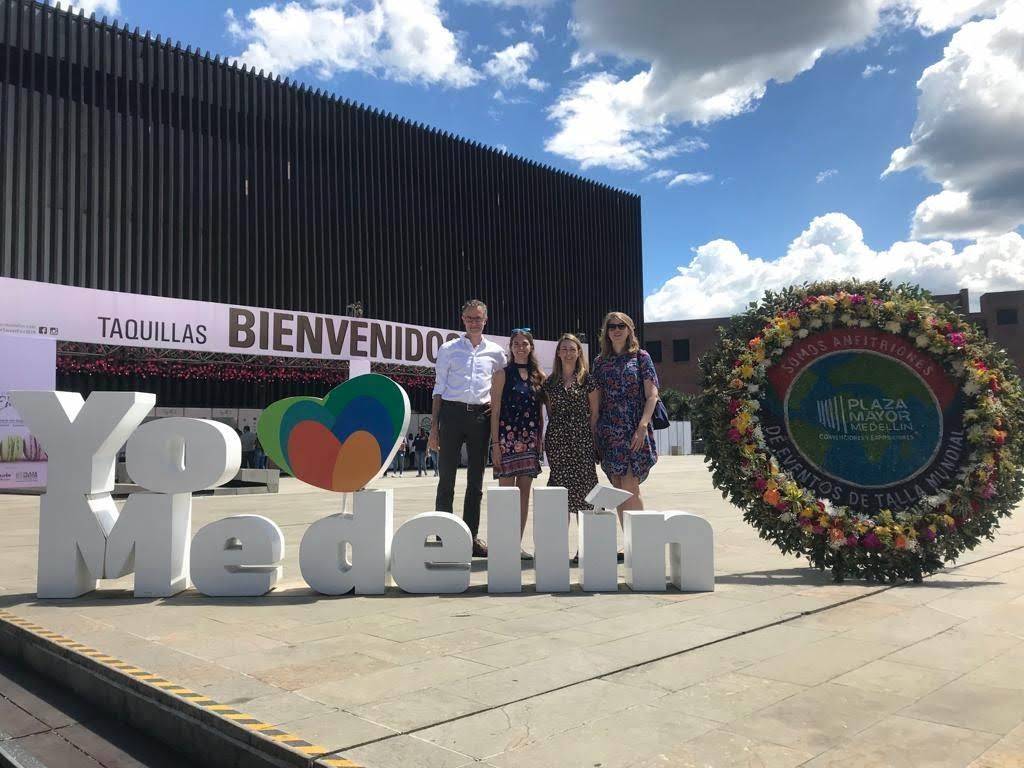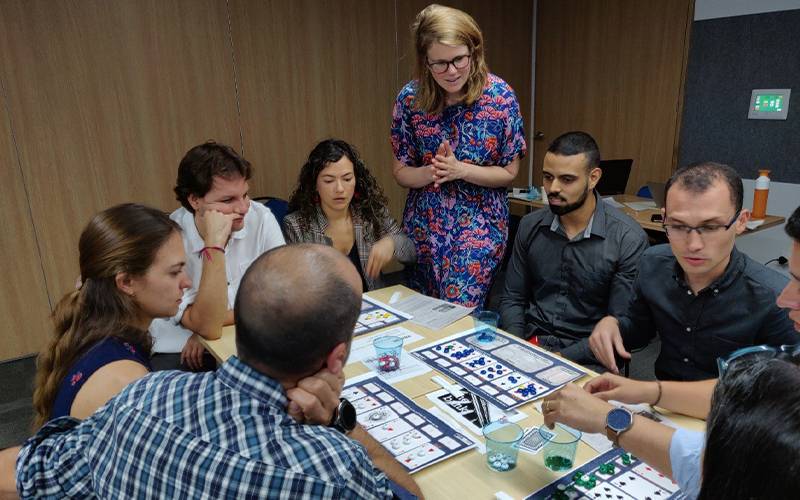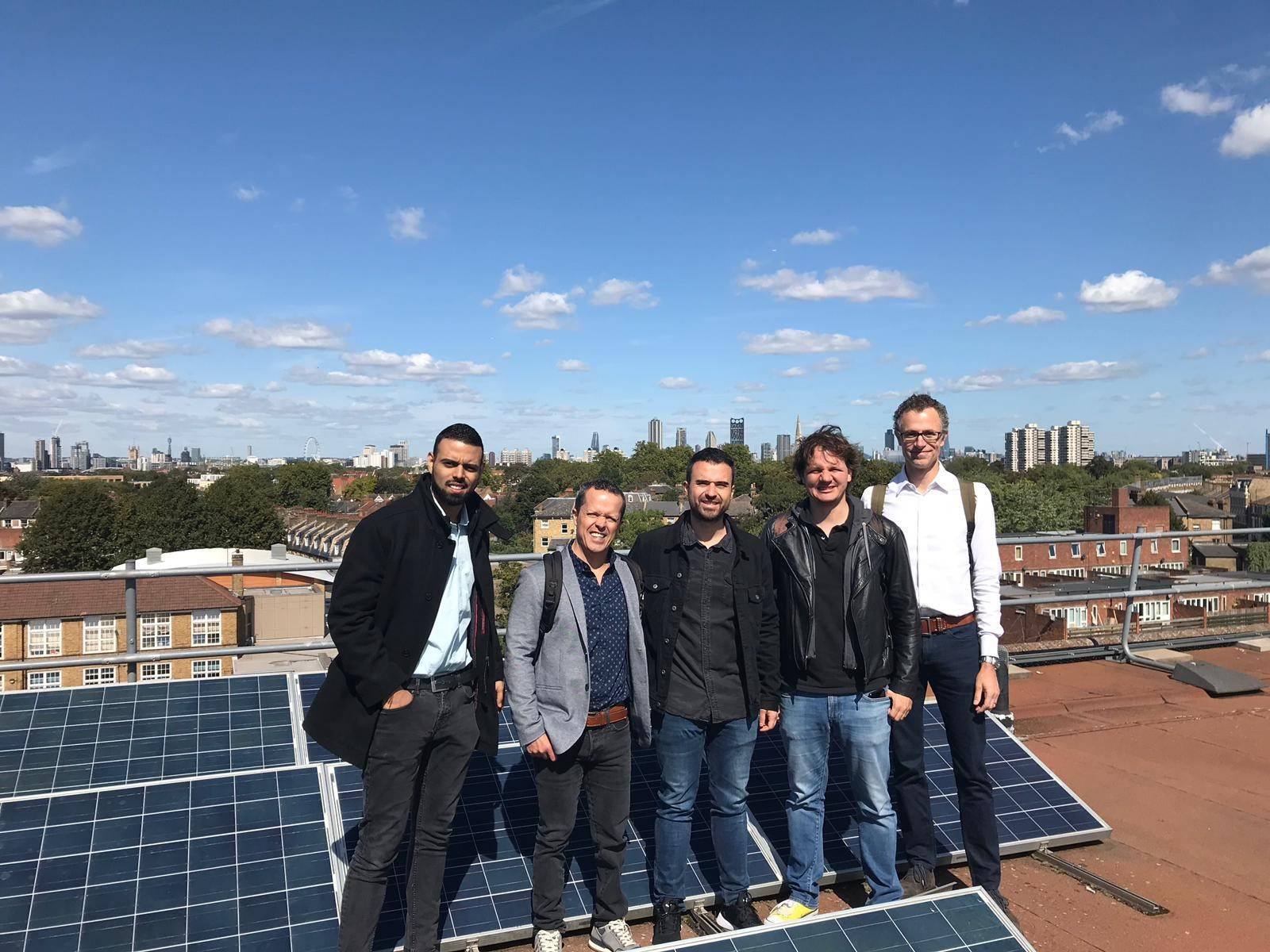Transactive Energy: knowledge sharing with Colombia and the UK
4 October 2019
Peer-to-peer energy markets face a critical challenge: How do we get people to manage and trade their own energy? Moreover, how do we handle the shift from a centralized system led by large companies to a distributed one led by the end-users?

To answer these questions, researchers from UCL and Universidad EIA are setting up a peer-to-peer pilot in Medellin, Colombia, working with Empresas Públicas de Medellin (EPM), one of the largest utilities in Latin America, and ERCO Energia, one of the most important rooftop PV installers in Colombia.
These institutions are working together as part of a research project called Transactive Energy Colombia Initiative, financed by the Royal Academy of Engineering and EPM. The project activities include the development of a peer-to-peer trading app, the elaboration of policy recommendations for Colombian policymakers and a roadmap to for commercial scale-up.

Figure 1. The UCL and EIA team in Medellin
In Medellin, many energy users, especially those living in high-rise buildings, are not able to generate their own electricity. The main idea is that peer-to-peer will allow these users to buy energy from other people in the city, by taking into account particular energy attributes: how green it is, what the social impact is, who owns the generation infrastructure, or where it is generated within the city. This creation of social value around energy is one of the key points of the joint research by Universidad EIA and UCL.
The peer-to-peer pilot will group 14 residential users with different income levels located in the city of Medellin, each one of them independently connected to EPM’s distribution network. Low-income users will have solar panels installed on their rooftops, and will trade energy with high-income consumers and prosumers. In addition to residential users, the pilot will include the installation of a combined solar and storage solution in a community centre. This centre is located in Comuna 13, a district of Medellin where grassroots and youth movements use hip-hop to resist violence and to create a local identity.
The project started in April 2019 and will end in October 2020. Last August, Alexandra Schneiders, Julia Tomei and David Shipworth, from the UCL Energy Institute, travelled to Medellin to conduct a set of activities aimed at giving traction to peer-to-peer discussions in Colombia. A research agenda with other universities and the electric market operator served as a source of new project ideas, and an open lecture from David Shipworth to EIA students showed them the possibilities and challenges of transactive energy research.
During this visit, UCL researchers delivered a masterclass to people from the transmission, distribution, innovation and IT departments of EPM. This activity was particularly useful to align decision-makers inside the company and to think beyond the business-as-usual possibilities for a large utility.

Figure 2. The peer-to-peer masterclass: energy trading in action
One month later, staff from Universidad EIA, EPM and ERCO travelled to London to showcase the pilot during the launch Global Observatory on Peer-to-Peer, Community Self-Consumption & Transactive Energy Models on 2-3 September 2019. This observatory, led by UCL, is as a way to create high-level recommendations through the Demand-Side Management Technology Collaboration Programme (DSM TCP) by the International Energy Agency and to share knowledge to develop business models.

Figure 3. The Colombian team visit the Brixton P2P pilot site, with Professor David Shipworth
The Medellin pilot will be fully deployed in October 2019, and will have a monitoring stage lasting a year. This trial will provide valuable information to design future peer-to-peer schemes in the developing world.
Written by Santiago Ortega, Universidad EIA
 Close
Close

